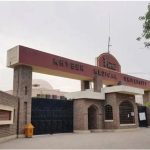Globally, industries and businesses are rapidly incorporating modern technologies to streamline operations across the board. As such, academic institutions are following suit by introducing specializations in the latest domains including but not limited to data sciences, cybersecurity, AI, and machine learning.These colleges and universities are insuring that fresh graduates are abreast with the knowledge and skills demanded by modern companies, allowing them to fit right in.
In the aftermath of the COVID-19 pandemic particularly, the top 20 institutions in the US along with the 8 Ivy League schools which include Harvard, Stanford, Yale, Princeton, Columbia, Cornell, Dartmouth, Brown, and Pennsylvania introduced more than 850 courses online which cover modern domains.These domains include data sciences, programming, cryptocurrency technologies, AI, algorithms, and machine learning for data science and analytics to name a few. So far, these courses have witnessed enrollments in excess of 40 million from around the world.
Pakistan is a country generally regarded as a late adopter of the latest trends, yet the pace at which the latest technologies are finding their way into various departments of local organizations is unprecedented. Automation, AI, and data analytics tools are already in use across several organizations while several others rely heavily on cloud computing.
Simultaneously, cybercrime activities have found their way into the country’s financial infrastructure, giving rise to a need for cybersecurity professionals.
The country’s ICT sector is its 2nd largest after trading with more than 10,000 active companies operating in segments like Information Technology, hardware, e-commerce, and software development to name a few.
These companies have international clients in their portfolio which include some Fortune 500 firms as well, making Pakistan one of the biggest hubs for ICT exports at the same time.
Amidst these developments, Pakistani universities need to take steps to introduce tailored programs that enable graduates to explore opportunities in fields that are relevant to modern ecosystems.
These programs are designed to equip graduates with the knowledge and skills that can facilitate them in landing progressive roles not just within the local economic ecosystem but also with global organizations while enabling them in carving professional niches in their specialized fields.
For instance, universities in Pakistan are offering degree programs in technology management, a field that focuses on the idea to train manpower that is knowledgeable and skillful in disruptive technologies.
It aims to instill individuals with the technological and business management acumen to lead and improvise solutions to the problems humanity faces. Further, it will enable graduates can map processes of the industry and strategize conversion to a digital platform.
A specialty in technology management can include courses on technology, telecommunications engineering, mobile communication, 5G, IoT systems management, IoT sensors, and communication.
At the same time, subjects like Artificial Intelligence, Machine Learning, Learning Management System, Software Quality Management and Business Process Reengineering (BPR), Data Science, Data Mining, Machine Learning, Optical Fibre, Computer Aided Drawing & Drafting can also be part of the curriculum to further extend the scope of relevant degrees for students.
Similarly, degrees should also be offered in the Internet of Things (IoT), AI, and data sciences which equips students with the vast knowledge of computing of connected devices and related areas to earn relevant credentials in a technology-cum management discipline.Programs like technology management and IoT have the potential to expand opportunities for students by allowing them to pursue careers like management or system analysts, IT and technology managers, management consultants, computer network architects, and numerous others.
These bright employment opportunities exist in various modern sectors like energy, healthcare, transportation, infrastructure, and manufacturing. These programs are paving the way for students to pick more sustainable careers that offer greater opportunities for growth in the times to come.
With prospects beyond the local market, graduates from Pakistan will continue to compete with foreign students only this time through locally acquired degrees that keep them at par with the best there is.







